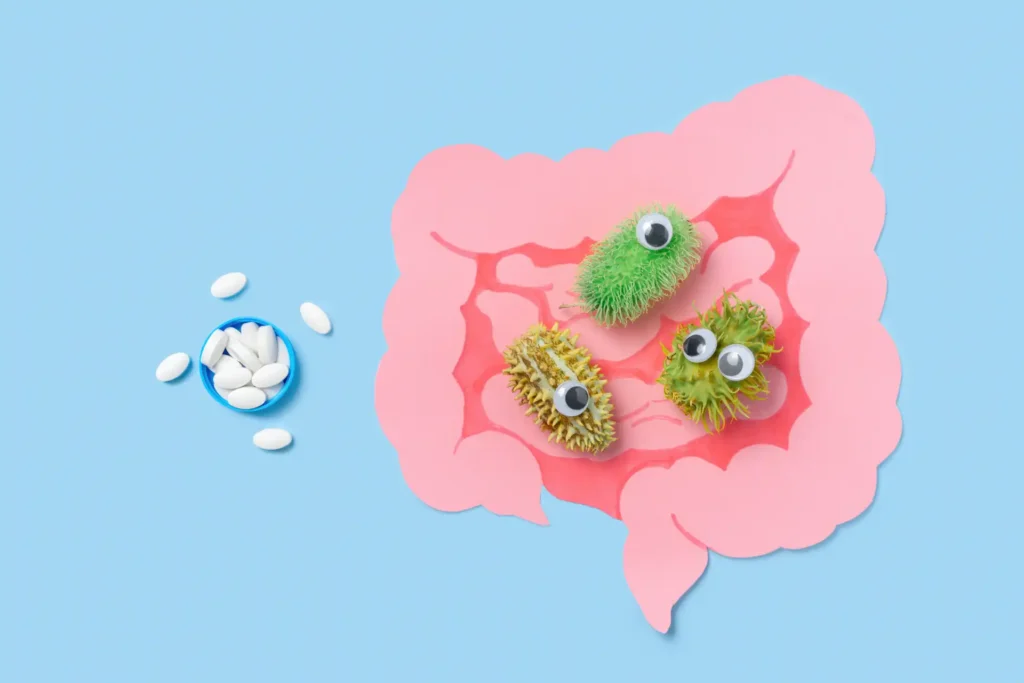When you’re pregnant, your body transforms in incredible ways. From hormonal changes to shifting appetites, every new experience helps prepare for the baby growing inside you. But one vital aspect of pregnancy often goes unnoticed — your gut. Understanding gut health during pregnancy can improve digestion, boost your energy, and even influence your baby’s lifelong wellness.
Understanding the Gut Microbiome
Your gut microbiome is a world of its own — home to trillions of bacteria, fungi, and other microorganisms that live inside your digestive tract. Far from being harmful, most of these microbes are beneficial. They help break down food, absorb nutrients, and protect you from infections. During pregnancy, hormonal shifts, new eating habits, and even stress can change the balance of your gut bacteria.
These changes can be both helpful and challenging. For example, a mild shift in bacteria supports the baby’s growth and your immune system. But if your microbiome becomes unbalanced, it can cause digestive discomfort, fatigue, and inflammation. Supporting your gut helps keep you feeling your best and ensures your baby receives optimal nutrients.

How Gut Health Changes During Pregnancy
Each trimester brings a new stage of gut adaptation. In early pregnancy, hormonal changes can slow digestion, causing nausea or bloating. By the third trimester, your gut bacteria shift again to help your body store more energy and nutrients for your growing baby. This natural process is fascinating — but it also means your gut needs extra care to stay balanced.
According to research from the National Institutes of Health, a balanced microbiome during pregnancy can help prevent complications such as gestational diabetes, high blood pressure, and excessive inflammation. It also plays a role in regulating mood and reducing stress hormones, which benefits both mom and baby.
Why Gut Health Matters for Your Baby
When you nurture your gut, you’re also nurturing your baby’s. Your microbiome helps shape your baby’s immune system and metabolism. Studies show that mothers with balanced gut bacteria are more likely to give birth to babies with strong immunity and fewer digestive issues.
During vaginal birth, the baby comes into contact with the mother’s bacteria, which helps seed the newborn’s microbiome. Breastfeeding then continues this process by delivering beneficial bacteria and antibodies that strengthen your baby’s immune system. Even if you have a C-section, maintaining your gut health supports your milk composition and overall postnatal recovery.
Signs Your Gut Needs Attention
Wondering if your microbiome could use some support? Here are a few signs of imbalance:
- Frequent bloating or irregular digestion
- Cravings for sugary or processed foods
- Low energy or mental fog after eating
- Constipation or diarrhea
- Increased stress or anxiety levels
If you recognize any of these symptoms, small lifestyle changes can make a big difference in restoring balance.
Best Foods for Gut Health During Pregnancy
Eating for gut health doesn’t have to be complicated. The key is to include a variety of probiotics and prebiotics — foods that feed and maintain your good bacteria.
- Probiotic-rich foods: Yogurt with live cultures, kefir, miso, sauerkraut, and kimchi help replenish good bacteria.
- Prebiotic foods: Bananas, oats, garlic, onions, and asparagus feed your healthy microbes.
- Fiber-packed choices: Fruits, vegetables, and whole grains support regular digestion.
- Hydration: Water helps nutrients move smoothly through your system and prevents constipation.
For a detailed meal guide, visit our related post Nutrition During Pregnancy: Essential Foods for Each Trimester.

Probiotics and Supplements: Are They Safe?
Many healthcare professionals now recognize probiotics as beneficial during pregnancy. These supplements can restore healthy bacteria and support digestion, especially after antibiotic use. Some research suggests that probiotics may help reduce the risk of gestational diabetes and even lower the chance of your baby developing eczema or allergies.
However, not all probiotics are equal. Look for pregnancy-safe strains like Lactobacillus rhamnosus and Bifidobacterium lactis. Always consult your doctor before starting any supplement to ensure it’s suitable for your personal needs.
Lifestyle Habits That Improve Gut Health
Beyond what you eat, your daily habits also affect your gut’s health. Here are pregnancy-safe routines that keep your microbiome thriving:
- Sleep well: Aim for at least seven hours each night to maintain your gut-brain connection.
- Exercise gently: Prenatal yoga, swimming, or walking stimulate digestion and circulation.
- Manage stress: High stress levels can harm good bacteria. Try deep breathing, meditation, or journaling.
- Eat slowly: Chewing food thoroughly supports easier digestion and nutrient absorption.
- Limit processed food: Avoid artificial additives and excess sugar that feed harmful bacteria.
These small, mindful choices not only improve gut balance but also enhance your mood and energy — two things every expectant mom can appreciate.
Postpartum Gut Health and Recovery
Your gut continues to matter long after childbirth. After delivery, hormonal changes and lack of sleep can throw your digestion off balance. Reintroducing probiotic foods and fiber can help your system recover more quickly.
Breastfeeding moms also pass beneficial bacteria through breast milk, which strengthens their baby’s immune defense. Even if you’re formula feeding, focusing on gut-friendly foods can support your healing process and mental clarity. Remember, a healthy mom equals a happy baby.
Connecting Gut Health and Emotional Well-being
Did you know your gut and brain are deeply connected? The “gut-brain axis” means that the bacteria in your digestive system can affect your mood and mental state. A healthy gut produces neurotransmitters like serotonin — the feel-good hormone — which helps regulate mood, sleep, and stress levels.
This connection is especially important during pregnancy, when hormonal and emotional changes can cause anxiety or irritability. Keeping your microbiome balanced can help stabilize emotions and promote a more peaceful pregnancy journey.
Final Thoughts
Your gut is more than your digestive system — it’s a living ecosystem that influences your overall health, your emotions, and your baby’s future. By taking care of your gut health during pregnancy, you’re investing in long-term well-being for both of you. Incorporate probiotic foods, gentle movement, hydration, and stress management into your daily routine, and you’ll notice the difference in your energy and mood.
Ready to take the next step toward a healthier pregnancy? Explore our Week-by-Week Pregnancy Journey guide to learn how your body — and your gut — evolve through every trimester.
For evidence-based research, read the NIH Study on Gut Microbiome and Pregnancy Health for deeper insight into how your inner ecosystem shapes your baby’s development.



